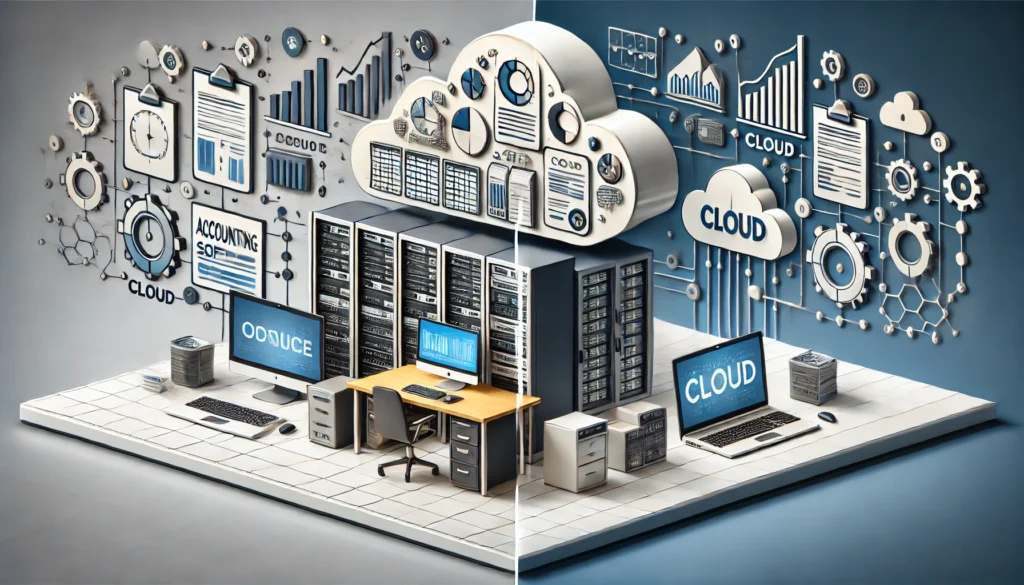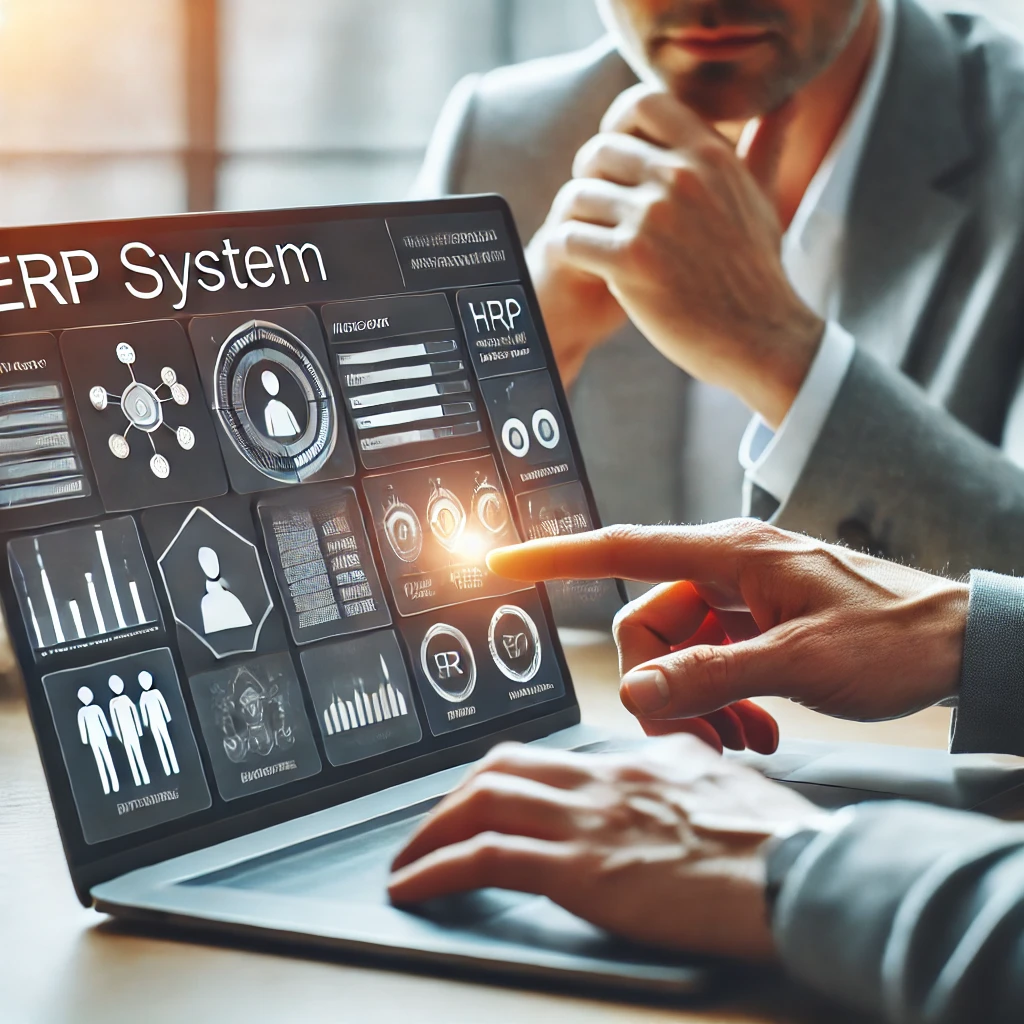Choosing Accounting Software
Local Installation vs Cloud Based Solutions

In the modern business landscape, managing finances efficiently is critical to success. Accounting software has become an essential tool for businesses of all sizes, providing streamlined processes, accurate financial reporting, and improved decision-making capabilities. However, one of the most significant decisions businesses face when choosing accounting software is whether to opt for a locally installed solution or a cloud-based system. Understanding the differences between these options, along with their respective benefits and drawbacks, is crucial for making an informed choice that aligns with your business needs.
Understanding Accounting Software A Quick Overview
Local Accounting Software Features and Benefits
Cloud Based Accounting Software The Future of Financial Management
Cost Considerations Cloud vs Local Solutions
Data Security Which Option is Safer
User Experience and Accessibility
Scalability and Flexibility Adapting to Business Growth
Long Term Considerations Future Proofing Your Business
Understanding Accounting Software A Quick Overview
Accounting software refers to applications and tools designed to help businesses manage their financial operations. These include bookkeeping, payroll management, accounts payable and receivable, tax compliance, and financial reporting. Traditionally, businesses relied on manual accounting or spreadsheets, but the advent of dedicated accounting software has revolutionized financial management, making it more accurate, efficient, and user-friendly
Local Accounting Software Features and Benefits
Local accounting software is installed directly on a company’s computers or servers. This type of software has been the traditional choice for many businesses, offering several advantages
Control and Ownership: With local software, businesses have complete control over their data and software environment. This can be a significant benefit for companies that require strict data governance or operate in regions with stringent data protection laws
Customization: Local solutions often allow for a higher degree of customization. Businesses can tailor the software to meet specific needs, which can be particularly beneficial for industries with unique accounting requirements
Performance: Because the software runs on local hardware, performance can be optimized based on the company’s specific IT infrastructure. This can lead to faster processing times and more reliable performance, particularly in environments with limited internet connectivity
Offline Access: One of the key advantages of local software is the ability to access and use the software even without an internet connection. This can be critical for businesses located in areas with unreliable internet services
Cloud Based Accounting Software The Future of Financial Management
Cloud-based accounting software, on the other hand, is hosted on remote servers and accessed via the internet. This model has gained significant popularity in recent years due to its flexibility and the benefits it offers
Accessibility: Cloud accounting software can be accessed from any device with an internet connection, allowing for greater flexibility in terms of where and how business operations are managed. This is especially beneficial for companies with remote teams or multiple locations
Automatic Updates: Software updates and maintenance are managed by the service provider, ensuring that businesses always have access to the latest features and security updates without the need for manual intervention
Scalability: Cloud solutions are easily scalable, allowing businesses to adjust their subscription plans as they grow or their needs change. This makes cloud software a more flexible option for growing businesses
Collaboration: The cloud environment facilitates real-time collaboration between team members, accountants, and other stakeholders, making it easier to manage financial operations across departments and locations
Cost Efficiency: Cloud solutions typically operate on a subscription basis, reducing the need for significant upfront investment in software licenses and hardware. This can make cloud accounting more cost-effective, particularly for small and medium-sized businesses
Cost Considerations Cloud vs Local Solutions
When comparing the costs of cloud-based and local accounting software, it’s essential to consider both the short-term and long-term expenses
Local Accounting Software Costs: Typically involves a one-time purchase fee, along with ongoing maintenance, support, and upgrade costs. Additionally, businesses need to account for hardware expenses and IT personnel to manage the software
Cloud-Based Accounting Costs: Operates on a subscription model, with a recurring monthly or annual fee. While this can be more predictable, businesses need to factor in the cumulative cost over time. However, cloud solutions often reduce the need for dedicated IT resources, which can offset some of the subscription costs
Data Security Which Option is Safer
Data security is a critical concern for any business. Both local and cloud-based solutions offer distinct security advantages and challenges
Local Software Security: Businesses maintain direct control over their data, which can be stored on-site, allowing for tailored security measures. However, this also places the responsibility for data protection entirely on the business, requiring robust IT security practices
Cloud-Based Security: Reputable cloud providers invest heavily in security measures, including encryption, multi-factor authentication, and regular security audits. Data is stored in secure data centers, often with better protection than what many small businesses could achieve on their own. However, businesses must trust the provider’s security protocols and ensure compliance with industry regulations
User Experience and Accessibility
The user experience is another crucial factor when choosing accounting software
Local Software: May offer a more customizable and potentially faster experience, depending on the hardware and network environment. However, accessibility can be limited to specific devices or locations
Cloud Software: Offers greater accessibility and the ability to work from virtually anywhere. This can improve workflow efficiency, particularly for businesses with remote teams or mobile workforces
Scalability and Flexibility Adapting to Business Growth
As businesses grow, their accounting needs evolve
Local Software: Scaling a locally installed solution can require additional licenses, hardware, and IT resources, which can be costly and time-consuming
Cloud Software: Cloud-based solutions are inherently scalable. Businesses can easily upgrade their subscription plans or add new users, making it a more flexible option for growing companies
Long Term Considerations Future Proofing Your Business
When selecting accounting software, it’s essential to consider the long-term implications
Local Software: May become outdated as technology evolves. Upgrading to newer versions can be expensive and disruptive
Cloud Software: Providers regularly update their platforms, ensuring that businesses have access to the latest technology and features. This continuous improvement helps future-proof your business operations, reducing the risk of obsolescence
Conclusion
Choosing between local and cloud-based accounting software depends on various factors, including your business’s size, budget, and specific needs. Local software offers control and customization, making it a strong choice for businesses with specialized requirements or those concerned about data sovereignty. On the other hand, cloud-based solutions provide flexibility, scalability, and cost efficiency, making them ideal for growing businesses and those with remote teams. By carefully considering these factors, businesses can select the accounting software that best aligns with their operational goals and future growth plans


